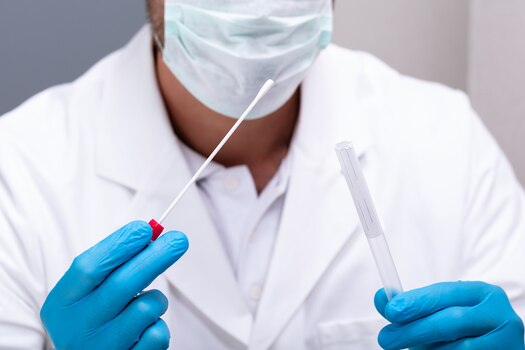With covid-19 cases on the rise and the country on a lockdown, the UK Government has rolled out new measures for inbound international passengers.
According to a release from the British High Commission, mandatory pre-departure testing for all inbound passengers to England from most countries in the world will begin from 4am this Friday (15 January) “to safeguard public health”.
For arrivals from Antigua and Barbuda however, this will come in to effect from 4am UK time on Thursday 21st January.
As is the custom in Antigua and Barbuda, arriving passengers must show present a negative COVID-19 test result which has been taken no more than three days prior to departure. This is now the case for arriving passengers entering the UK.
For people arriving from countries not on the Travel Corridor list, they will still be required to complete a mandatory self-isolation period, and the Travel Corridors list is regularly reviewed to manage the risk of imported cases of COVID-19 from high-risk countries.
Passengers still have the option to reduce their self-isolation period as part of the Test to Release scheme launched last month, unless they have been in South Africa, Angola, Botswana, Eswatini, Lesotho, Malawi, Mauritius, Mozambique, Namibia, Seychelles, Zambia or Zimbabwe in the 10 days prior to their arrival in England.
All travelers,will still be required to complete a Passenger Locator Form before arrival into England.
On arrival into England, Border Force will check passengers’ test certificates and Passenger Locator Forms through the current spot check regime.
Antigua and Barbuda remains on the UK’s “Travel Corridors” list so arrivals from the country will not need to self-isolate on arrival, however, all travelers must follow the UK’s national lockdown rules.
Children under age 11 will not be expected to present a test. There will also be exceptions for passengers travelling from countries without the infrastructure to deliver an adequate test, including St Helena, Ascension Island and the Falklands.
Short term temporary exceptions will apply to four additional destinations so that Britons are able to return home.
Operators have the right to refuse boarding for passengers without a negative result and completed passenger locator form in the coming weeks – and those found travelling without the right documents risk being fined £500.
Before travelling, passengers will need to find a provider which meets the standards set out on gov.uk – the majority of which will be Polymerase Chain Reaction (PCR) tests.
If passengers do not use a PCR test, they should request that their test provider includes the sensitivity and specificity of the test on their test result certificate.
Prior to departure, passengers will be required to present proof of a negative COVID-19 test result to transport operators, as well as their passenger locator form.
The UK Border Force will conduct spot checks on arrival into England, with passengers who arrive at the border without proof of a negative result subject to an immediate £500 fine.
Detailed guidance published on GOV.UK today sets out how passengers should follow the new rules – including the details of documents needed for travel and the types of test accepted.




